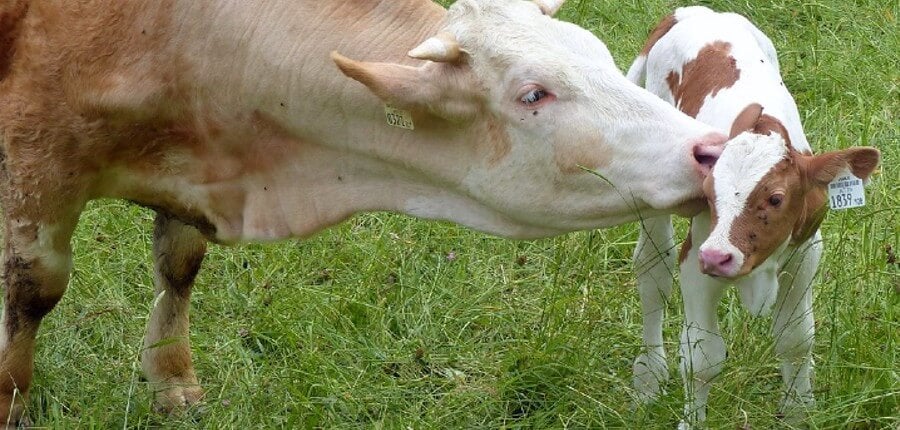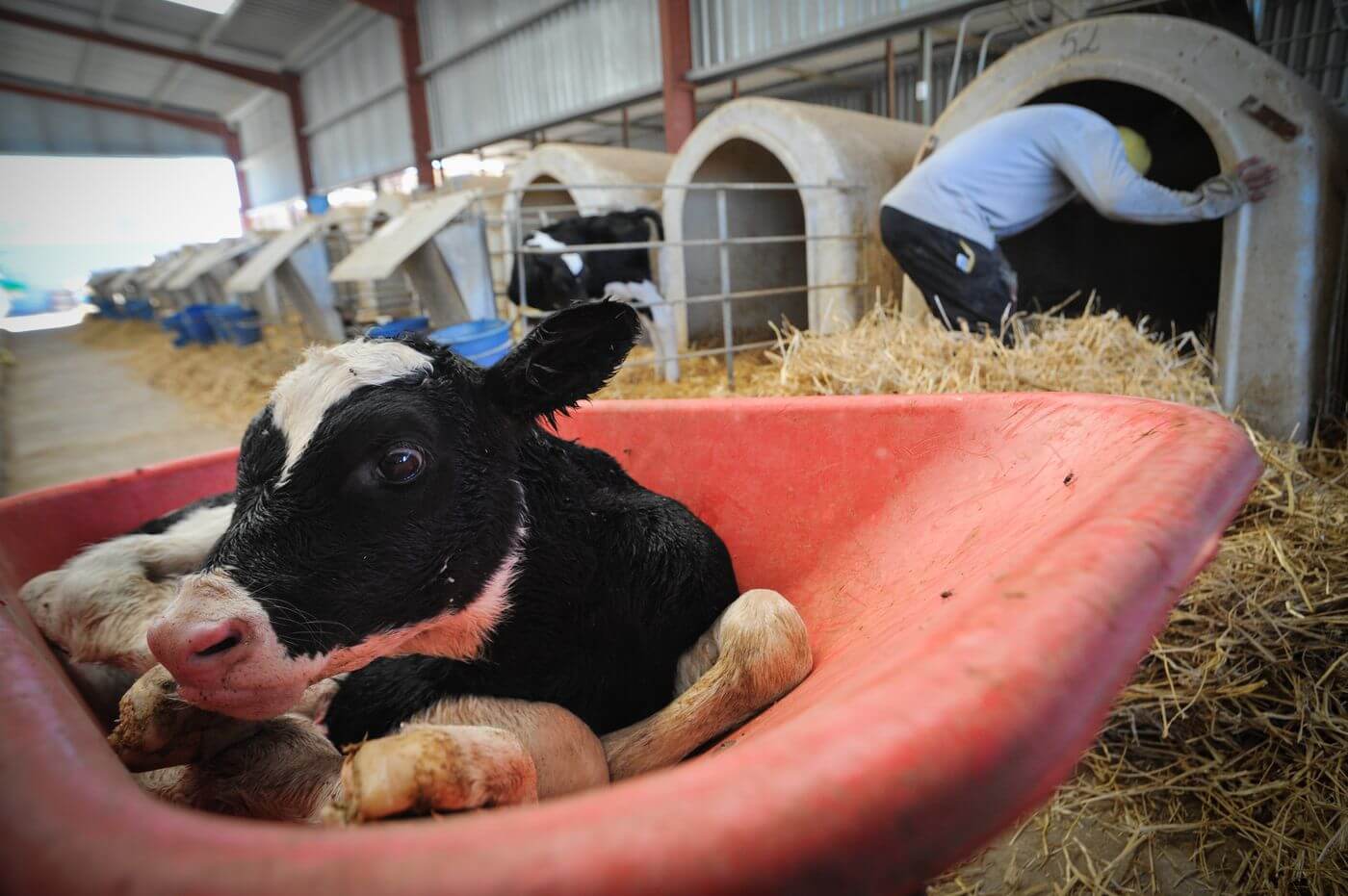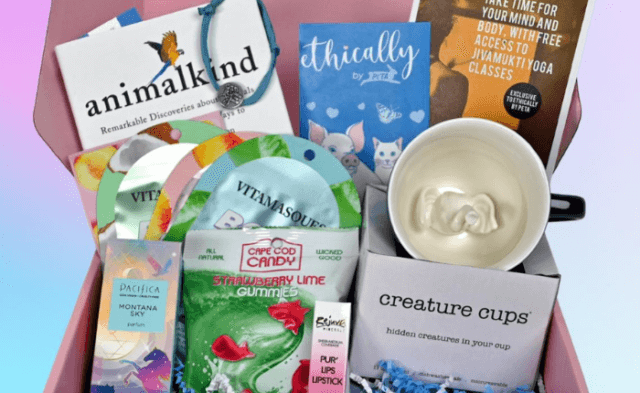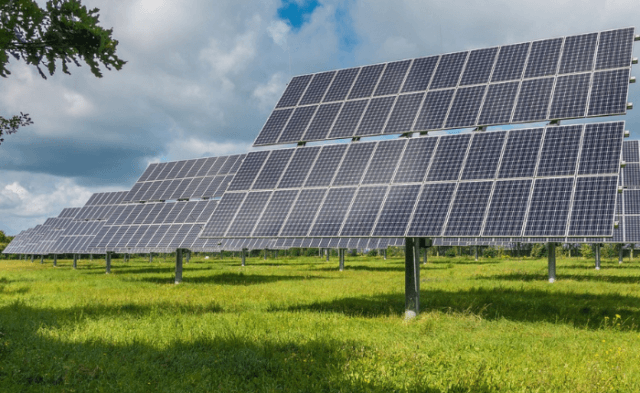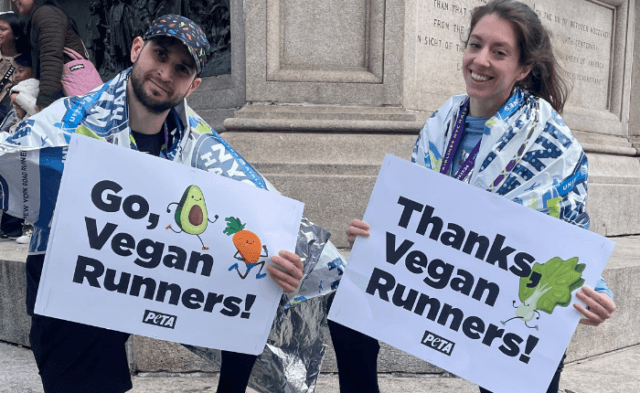The day my daughter was born was one of the happiest days of my life. I spent five hours in labor and gave birth to a beautiful baby girl. I had been paranoid that something would go wrong, so I was overjoyed that she was healthy. Our bond was instantaneous, and as I spent my days and nights holding and feeding her, never wanting to let her go, a thought came to my mind: Thank goodness I’m not a cow. Most cows—and all farmed animals, for that matter—don’t get to enjoy motherhood as humans do.
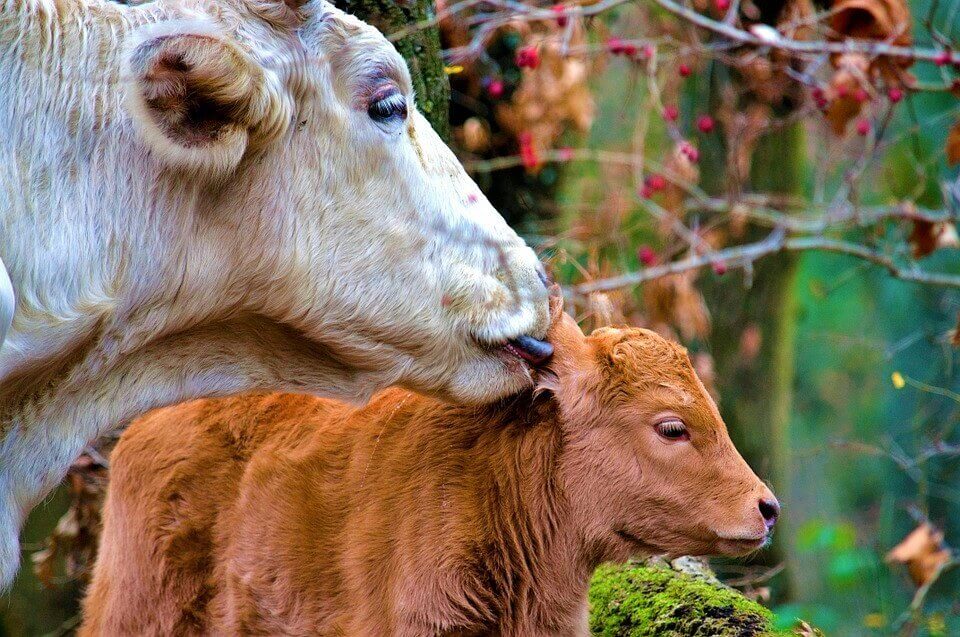
If I were a cow, my precious infant would have been taken away from me shortly after birth, and no amount of bellowing would have brought her back. In the dairy industry, newborn calves are taken from their mothers so that the milk meant for them can be stolen by humans.
Think about it: Cows produce milk for the same reason humans do—to nourish their young. For cows exploited in the dairy industry, birth is nothing to celebrate. Female calves are turned into virtual milk machines like their mothers. They’re artificially inseminated soon after their first birthday and forced to churn out babies every year, only to see them taken away. It’s a never-ending cycle of trauma and cruelty.
When a cow’s milk production wanes, usually when she’s only 4 or 5 years old, she’s worthless to the dairy industry. She ends up at the slaughterhouse, bloodied, dangling by a hind leg with her throat cut.
Even the thought of my baby being taken from me, never to be seen again, brings me immeasurable anguish. I’m sure you can understand why I’m so thankful not to be a cow. I wouldn’t have gotten to experience the joy of raising my own daughter.
Male calves aren’t exempt from misery. They are often slated to be someone’s dinner. Instead of playing and making friends, they’re chained in cramped stalls and raised for veal. Fed a formula that’s low in iron so they’ll be anemic, their flesh stays pale. Normal muscle growth is stunted to produce tender meat. These youngsters are usually killed when they’re between 3 and 18 weeks old.
I wouldn’t wish that fate on anyone. My heart breaks when I think about how it’s inflicted on other mothers and their babies simply because they aren’t humans. Mother pigs exist in ghastly gestation crates—cages that are just 2 feet wide and too small for them even to turn around or lie down comfortably. And although mother hens cluck to their chicks before they even hatch and the chicks peep back through their shells, they’ll never spend a single minute together since the eggs are taken by humans.
Being a mom has its challenges and heartaches—don’t get me wrong. But I didn’t have to endure heart-wrenching torment in the dairy, meat or egg industry. I can’t even fathom how traumatized I’d be if my daughter—who is 10 now—were taken from me. If you have children, I’m sure you’d feel the same.
We should all be outraged that mothers, human or not, are subjected to the agony of losing a child, especially for something frivolous and unnecessary. We have so many vegan options nowadays, including oat and almond milks and all the dairy-free foods that can be made from them.
So this Mother’s Day and all year round, please show compassion for all mothers by choosing tasty vegan foods, as my daughter and I do.

